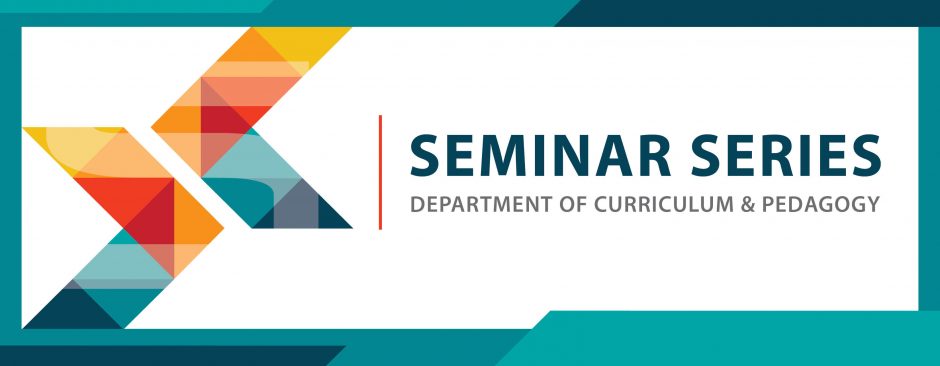
Dr. Nicholas Ng-A-Fook | Professor of Curriculum Theory | University of Ottawa
Friday, June 2, 2016 | 3:00-4:30 p.m. (PST) | Scarfe 1209
View the Seminar Poster
No recording permission
Abstract:
There is a growing reconceptualization of how history “ought” to be taught in a disciplined fashion. For example, in Canada and in certain parts of the United States, history educators are calling for a shift from teaching the memorization of historical events toward knowing what it means, and how to, think historically. Responding to these shifting historical and contemporary disciplinary contexts, a number of scholars and history educators have and continue to argue that the role of history education is less about instilling knowledge of historical particulars – events, persons and dates – and more about developing “historical consciousness” or “historical thinking” amongst young people.[i] During this presentation, Dr. Ng-A-Fook suggests that making oral histories can provide a critical historical pedagogy for educators to reread, rewrite, remake and reconcile the multiple ways in which our Eurocentric public schooling system works to sanitize the current grand narratives that have come to constitute what some of us call Canadian history.
As Stanley astutely observes, “to many people grand narrative is the real past, the history of Canada.”[ii] Since their inception through to their final closures during the 1990s, our capacity to study the past about the Indian Residential Schooling (IRS) system has, for the most part, been excluded from the curriculum through the reproduction of various provincialized grand narratives. Consequently, as Willinsky rightly stresses, there needs to be “vigilance about what has been lost and what has been brought forward as ‘history’” both inside and outside the institutional context of its teachings within public education.[iii] Or as Marie Battiste succinctly puts it, “educators must reject colonial curricula that offers students a fragmented and distorted picture of Indigenous peoples, and offer students a critical perspective of the historical context that created that fragmentation.”[iv] This presentation in part, is a response to such calls for critical perspectives within history education.
Endnotes
[i] Seixas, Peter, ed. Theorizing Historical Consciousness. Toronto, ON: University of Toronto Press Incorporated, 2004; Stearns, P., P. Seixas, and S. Wineburg, eds. Knowing, Teaching and Learning History: National and International Perspectives. New York, NY: New York University Press, 2000.
[ii] Ibid.
[iii] Willinsky, J. (1998). Learning to Divide the World: Education at Empire’s End. Minneapolis, Minnesota. University of Minnesota Press, p. 134.
[iv] Battiste, Marie. Decolonizing Education: Nourishing the Learning Spirit. Saskatoon, SK: Purich Publishing Ltd., 2013, p. 186.
Short Bio:
Nicholas Ng-A-Fook is a Professor of Curriculum Theory at the University of Ottawa. He is also the current Director of Teacher Education and a member of the Making History Educational Research Unit (see http://www.makinghistory-fairehistoire.ca). His current research program seeks to understand the different ways we can address the educational mandates put forth in the Truth and Reconciliation Commission’s Calls to Action within Teacher Education.